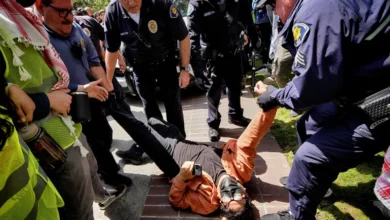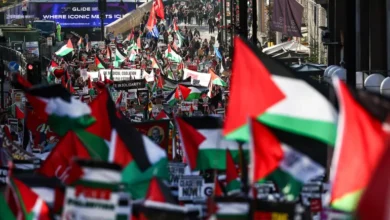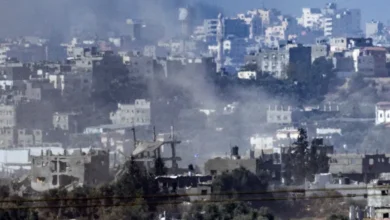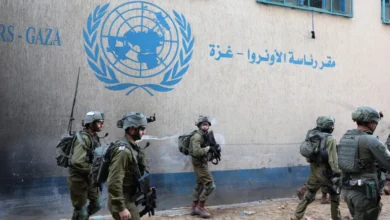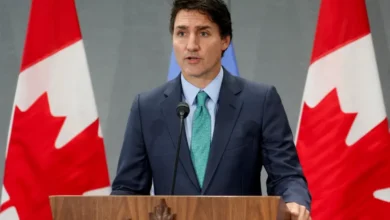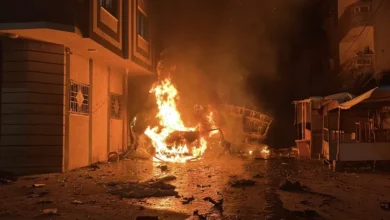In defence of international law
Nanjala Nyabola
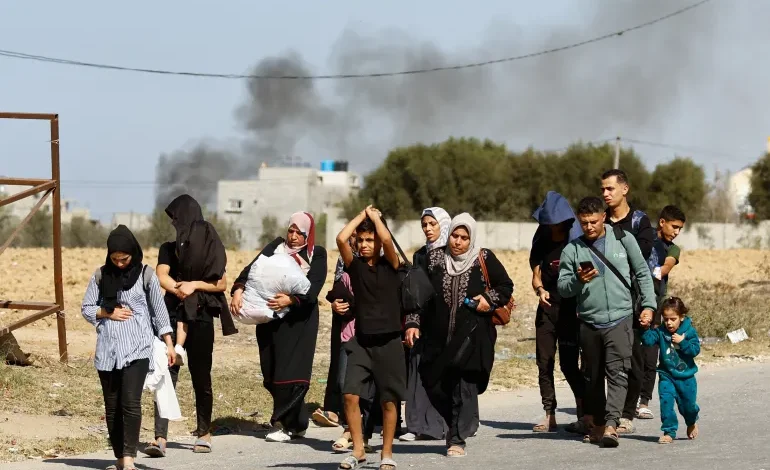
Nanjala Nyabola
October 2023 has been a month of many victims. Bombs are raining on civilians in Sudan and Gaza while much less reported-on crises in Syria and Afghanistan continue to simmer with periods of uneasy silence punctuated by sharp bursts of violence. Armed conflict has led to record levels of death and displacement, and a reckoning of sorts is now facing the so-called international order. Each of these crises has an individual context and narrative that deserves to be understood on its own terms, but together they have raised overarching questions about the present and the future of international relations broadly, and international human rights (IHRL), humanitarian (IHL) and criminal law (ICL) more specifically. For possibly the first time since the Rwandan genocide and the break up of Yugoslavia, everyday people across the globe are trying to understand what international law is, why it matters, and why it feels as if it is doing nothing at this moment when we need it the most.
As practitioners in this space, we have been too slow to come to a coordinated defence of this admittedly fluid and politically complex area of law. That the political leaders of some of the wealthiest nations in the world initially refused, then tiptoed around, invoking international law as a red line for the Israeli armed forces in Gaza is a bleak development that is sure to have ramifications beyond the Middle East. It has taken simply too long for the United States and many of its European allies to offer tepid, overly qualified defences the value of international law in the context of Gaza. Witnessing this choice while reading news of escalated fighting in Syria, Sudan, Haiti, and the eastern Democratic Republic of the Congo caused a shiver down the spine of anyone who has ever walked into a war zone to try and help civilians while armed only with a manual on the laws of war and a flak jacket. As experts in genocide and international law have been pointing out, we are crossing a rubicon into a present and a future that none of these political leaders seem to have fully contemplated.
Those of us who work within these bodies of international law are accustomed to healthy doses of public cynicism about our chosen profession. Unlike domestic law, for example, there is no standing international police force that has the power to arrest or detain and so we are accustomed to being asked what power of enforcement such a law could have. While there are international tribunals like the International Criminal Court (ICC) and the International Court of Justice (ICJ), the inner workings of these institutions are poorly understood even by our peers who work in other areas of the law, who might not understand for example why the ICC can only prosecute individuals, or the ICJ can only deal with disputes between nations. And the long history of powerful nations opting out of even the most basic systems of responsibility and accountability within these bodies of law often leaves us fielding questions about whether this is merely a concept designed to constrain poor nations and not rich. There isn’t a version of these and other criticisms that you can come up with that we haven’t heard and debated at length.
But in many ways that is what makes international law a more compelling body of law, certainly for practice. It represents something that domestic law doesn’t – consensus. States agree to be bound by certain principles even if they know that there is limited power of enforcement because we have collectively experienced what life is like without these principles. States and other political entities willingly opt out of that grim reality. We have theories about why individuals obey domestic law and enter into social contracts, but with international law, we have the documented evidence through preparatory documents and conference proceedings of why states willingly agree to be bound by these ideas. It is naïve to suggest that at times it is not just a question of political expediency – many governments agree to these rules because they think they will never be affected by them. But for the vast majority of countries international law represents an ideal or an aspiration of how they would like international relations to be conducted.
It’s worth recalling that the most universally accepted documents of international humanitarian and human rights law at least are developed on the back of some of the worst atrocities in history. The Geneva Conventions came after the Battle of Solferino and the horrific suffering that soldiers and civilians endured even when they were not actively involved in the fighting. The 1948 Convention on the Prevention of the Crime of Genocide was a response to the Holocaust, and the 1951 UNHCR Convention on Refugees came after the nations of Europe and North America denied Jewish people fleeing that atrocity safety at their borders. The Rome Convention that led to the International Criminal Court was a response to the need for a permanent place to resolve the kind of mass suffering created by genocide and war in Rwanda and the Former Republics of Yugoslavia in the 1990s.
It’s not that people didn’t know that they were doing bad things before these rules existed. Rather these treaties and conventions represent the need to make that knowledge explicit and to rally people around the idea that they must never be tolerated again. These bodies of international law represent the aspiration to conduct humanity in a different way from the worst ways we have behaved towards each other in the past. To reformulate a quote attributed to Dag Hammarskjold at the UN: the purpose of international law is not to get us into heaven but to save us from hell.
Similarly, in as much as those of us who study international law in university are primarily immersed in the Western canon, international humanitarian law is not a Western endeavour. In his searing speech at the Cairo Peace Forum in October, Jordan’s King Abdullah reminded listeners that Islam has long prohibited the targeting of non-combatants in the Pact of Umar, an edict issued in Jerusalem in the 7th century that prohibited Muslim soldiers from killing children, women, the elderly, from destroying the natural environment or harming priests or churches. I admit, I didn’t know about the edict before I listened to this speech, but it struck me as yet another situation in which a law may be codified or written out in a specific document at a specific time, but it actually represents a more universal underlying principle that all societies recognise and abide by, regardless. The underlying principle that unites both the Pact of Umar and the Geneva Conventions signed almost a thousand years later is that war is always a tragedy and we must do whatever we can to restrict the number of civilians who are affected by it.
The point of these bodies of international law is not universal compliance but universal aspiration towards compliance. In addition to the devastating loss of life, this underlying aspiration has been so publicly and seriously undermined by every single government and institution that has waited too long to demand that armed actors in Israel and Gaza abide by international law. These laws represent the belief that humanity is capable of better and that whatever that better is, it is worth orienting and coordinating all of our efforts towards it. If they cannot be defended in times like this then we are endorsing something truly ugly about what it means to be human. And we do this at the expense of every person who is depending on us to use them to reorient the behaviour of belligerents towards more humane conduct within the tragedy of war. International humanitarian law urges us to believe that there will be peace one day and when that peace comes, even those who are active in conflict deserve to be able to look at themselves in the mirror and not feel crushed by the weight of what they did while they were fighting.
Several governments in the global majority have rightfully drawn from these rules to try and prevent armed actors from becoming the worst versions of themselves in Sudan, Israel, Gaza and beyond. Those governments that are still tiptoeing around the issue may find it worthwhile to zoom out and look at the world in October beyond the Middle East for the bleak future we are facing without these principles. Belligerents in Sudan’s civil war have continued to bomb civilian neighbourhoods and add to the estimated seven million people already displaced in that conflict. In the DRC, rebels in parts of the east have taken to fighting again and the risk of spiralling is high as elections are planned for December. On October 22 in Ukraine, six people were killed in Kharkiv when the local post office was bombed, as that war continues. There are Yemen, Haiti, Syria, Afghanistan, fighting across the Sahel, Myanmar, and a long list of other places where we have to be able to ask people to protect civilian life, not just because they will be punished, but because we all agree that it is the right thing to do. In the same month that so many political leaders in the global minority have failed to do the bare minimum – to remind each other that these rules exist – the most fragile contexts in the world need them desperately to prevent further descent into hell.
History not learned from is bound to be repeated. These bodies of international law, for all their complexities, silences and limitations, are a prime example of human beings trying to learn from history. Those who wield power in the world have an obligation to be caretakers of our aspirations to be better. Abiding by these rules is the ideal but defending these previously agreed-upon principles is the bare minimum that we demand from governments around the world. And we who claim to be practitioners in this field have an obligation to voice this demand publicly and vocally. If we can’t achieve this bare minimum, then what are we doing? We have learned nothing and we are no better than the worst that came before us.
